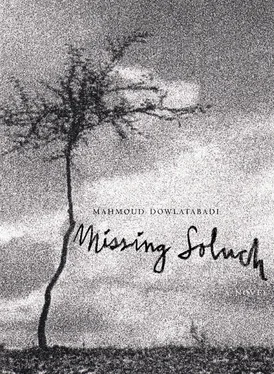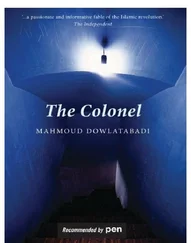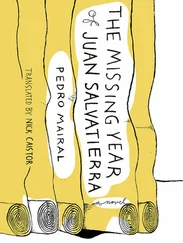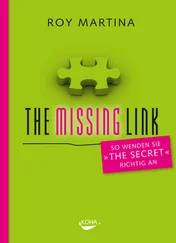Karbalai Doshanbeh looked at his son. If there were a word to describe crying without tears, one would use it to describe Salar Abdullah.
“You see them? They’re going to get a rope to pull the camel out of the well. Two of them have gone to get a well digger. They won, Papa! You see them?”
Karbalai Doshanbeh rose, shaded his eyes with one hand, and looked. A group of men were walking from the edge of the well toward the village. They had shovels on their shoulders as they walked. Another group was also approaching, scattered as they were. The shareholders in the water pump were walking scattered through the field like the Sardar’s camels. Karbalai Doshanbeh lifted his hand from his eyes and said, “No! They’ve not won. They’ll never get that camel out from the bottom of the well. No way! Are they taking Zabihollah to town, then?”
“They’re taking him and his broken bones to town. Go get your torn blanket and let’s leave.”
“No! No, I’ll stay here. I’ll stay right here!”
Karbalai Doshanbeh said this and went into the shed housing the pump’s motor and shut the door behind himself.
He grumbled to himself, “I’m staying. I’ll stay here. I have nothing left to return to Zaminej for.”
The group reached the pump one by one, gathering around the drain. They sat around it as if they were at a mourning ceremony. The trickle of water from the drain pained their eyes.
Molla Aman, Morad, Mergan, Hajj Salem, and Moslem were in the midst of the group. Moslem went to stand in the shade of the wall of the pump housing. He removed his clothes one by one and ran naked toward the drain pool, throwing himself into the water.
Hajj Salem looked at those gathered in exasperation. “You see that beast?”
Mergan turned and set back out toward Zaminej. Morad and Molla Aman also set out following her. They were silent and didn’t look around as they walked.
* * *
Abrau had fallen asleep by the tractor. Mergan didn’t have the heart to wake her son up. Morad sat down in the shade of the tractor and waited, as Mergan and Molla Aman walked away across the graveyard. Mergan looked at her brother. Molla Aman turned his head and averted his eyes from hers. Mergan asked him, “It wasn’t your doing?”
“What? What wasn’t my doing?”
“You were out until the middle of the night last night! This all wasn’t your doing?”
“What are you talking about? What wasn’t my doing?”
“The camel! Did you throw the camel into the well?!”
“You’re crazy! Sister, you’re insane!”
Molla Aman didn’t continue. He turned to go toward Karbalai Doshanbeh’s home and said, “I’m going to try to find a bit of hay to give to my donkey! And maybe a bit of water!”
Mergan didn’t watch him as he left, and she set out walking on her own path.
Raghiyeh wasn’t in the alley any longer. Mergan looked into Ali Genav’s home. Her daughter was sitting by the mortar and was grinding something inside it. Hajer’s pregnancy was now showing. Mergan entered and stood before Hajer beside the mortar.
“What are you grinding?”
“Some herbs. Ali brought it for me from town. He also brought some other bits and pieces. Some herbal flowers also. He’s so happy! Nothing’s happened and he’s already brought back some leather for me to make his son a vest! His son! Ha!”
“Good … Good … Hajer!”
Hajer raised her hand from the pestle and looked at her mother.
“Yes?”
Mergan took the pestle in her hand and busied herself grinding the herbs in the mortar. She was about to say something, but before she could open her mouth, Ali Genav came barreling into the room.
“Where are the ropes? Where? I had put them here somewhere!”
Hajer asked, “What do you want the ropes for?”
“We need to gather all the rope we have in the village and tie it together. It’s not a baby goat that’s fallen into the well!”
He looked for the ropes, finding them in the pantry. He didn’t say anything to Mergan. He tossed the coil of rope around his shoulder, and as he left he said, “The baths need water. Cattle need water. Crops need water. We can’t live without water!”
He went to the alley, and silence once again spread its blanket inside the house.
Mergan quietly continued to grind the herbs in the mortar with the pestle.
Hajer asked, “What’s happened?”
Instead of replying to the question, Mergan said, “We’re leaving.”
“Where?”
“We’re going out to the province where your father’s been seen.”
“All of you?”
“All of us? I don’t know!”
“Will you come back?”
“I don’t know.”
“What about me, then?”
“You … you have a house and a life here. You have a husband. Now that you’ll be bringing him a child, he’ll love you more. What are you worried about?”
Hajer was shocked into silence. Then she said, “But if you go, who will I have? If I need some help, who will be there? Who’ll cut the umbilical cord for my newborn baby?”
Mergan couldn’t give in to the compassion she felt in her heart. She said, “You’ll have people here. Someone will help you. I’ve not done anything bad to these people. They won’t refuse to help my daughter!”
Hajer’s lips began to tremble. Mergan couldn’t let herself be affected by her daughter’s tears. She rose and changed the subject. “You have a rash on your face!”
Hajer replied with a broken voice.
“That’s exactly what I’m worried about. Some of the neighbors are saying having a rash is a sign of the child being a girl!”
Mergan had heard this said as well. But she didn’t want to worry her daughter. She raised her head and said, “Let them say what they want! Are they in touch with God?”
She couldn’t take it. She turned, leaving Hajer sitting beside the mortar, and left.
Raghiyeh was sitting by the clay oven in the yard of Mergan’s house, knitting a small shirt, something for Hajer’s child. Abbas was sitting next to her on his knees, with his crutch close by. He was counting his coins out separately and was putting the coins he had counted back into the purse that hung from his neck. Mergan untied the remainder of the bread that she had kept tied into her chador, set it by the oven, and went inside. She didn’t usually spend very much time with Abbas and Raghiyeh. She knew that they did not enjoy her company. Ali Genav didn’t much concern himself with their relationship either. This was because it was well accepted in the village that Abbas was burnt out, such that he was not considered a man. This was due to both his inner and outer self. He’d not grown a beard; his voice was still high and thin. His mannerisms were androgynous and he was uninterested in women; he never spoke of them. He didn’t have a fancy for anyone at all. He never joked about such things. It wasn’t as if he had even an interest in female donkeys! And overall, there was no sign of the usual desire and impudence of a young man within him. All this indicated to the people of the village that Abbas was burnt out. And Mergan knew this more completely than anyone.
Raghiyeh’s fate was not much better than Abbas’. She was a bundle of sad bones, with a voice that rose only with great difficulty, with a curse close at hand. She was a creature who seemed to emit only curses and complaints. Raghiyeh the nag! That was the name that some had mockingly given her. So there was nothing to worry about: let the two sterile freaks keep each other company.
“So add it up again. Two two- qeran coins make four qerans . So we have four here!”
Raghiyeh held up four fingers separated widely.
“That’s four qerans .”
“Here are three five-qeran coins; so that’s fifteen!”
Читать дальше












